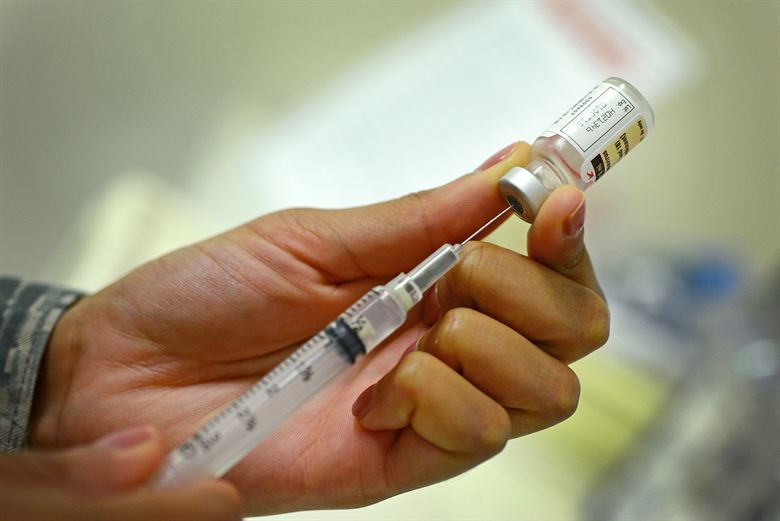This study counters the popular belief that live vaccines can cause infections in children with rheumatic disease
When children with JIA are given a measles shot, there’s close to zero chance that they will contract an infection from the live-attenuated vaccine, a study presented at EULAR in Madrid has found.
The Israel-led study included 234 young children with rheumatic disease from 10 countries.
These children were five years of age on average and were on a range of immunosuppressant drugs, including methotrexate, anti-TNF drugs and biologics. Most children had JIA with low disease activity levels.
The children were either given the live-attenuated measles, mumps, rubella (MMR) vaccine or the MMR varicella booster vaccine.
The study showed that the live vaccines were very safe; no children in the study contracted infections from the vaccines and adverse events were mild and infrequent.
The study counters the popular belief that live vaccines can cause infections in kids with rheumatic disease.
It’s possible, in theory, for a child with rheumatic disease who is on immunosuppressant medication to contract an infection from the live vaccination itself, but this has never been proven.
Some doctors are now giving children with rheumatic disease the measles vaccination because they believe the measles outbreak poses a greater risk than the vaccine.
The lead study author, Professor Yosef Uziel from Tel Aviv University in Israel, said he could cautiously recommend live vaccinations in children with rheumatic disease at this stage.
The level of evidence was still low, but the research group would launch a prospective study on safety and efficacy of the MMR booster vaccine in children with rheumatic disease on immunosuppressant therapy, Professor Uziel said.
Another large study presented at EULAR found the influenza vaccine was not linked to disease flares – another myth that has been circulating in the patient community.
The observational study of around 15,000 people with autoimmune rheumatic disease, presented by researchers from the University of Nottingham in the UK, reported there was no association between the flu vaccine and corticosteroid prescription and vasculitis.
In fact, flu vaccination was linked with a reduced primary-care consultation for joint pain and fatigue in the following months.
“Our results clearly support the use of the flu vaccine in rheumatic patients and should dispel any fears people have about reported links to disease activity or vasculitis,” Dr Georgina Nakafero, a rheumatology academic and study author from the University of Nottingham, said.


